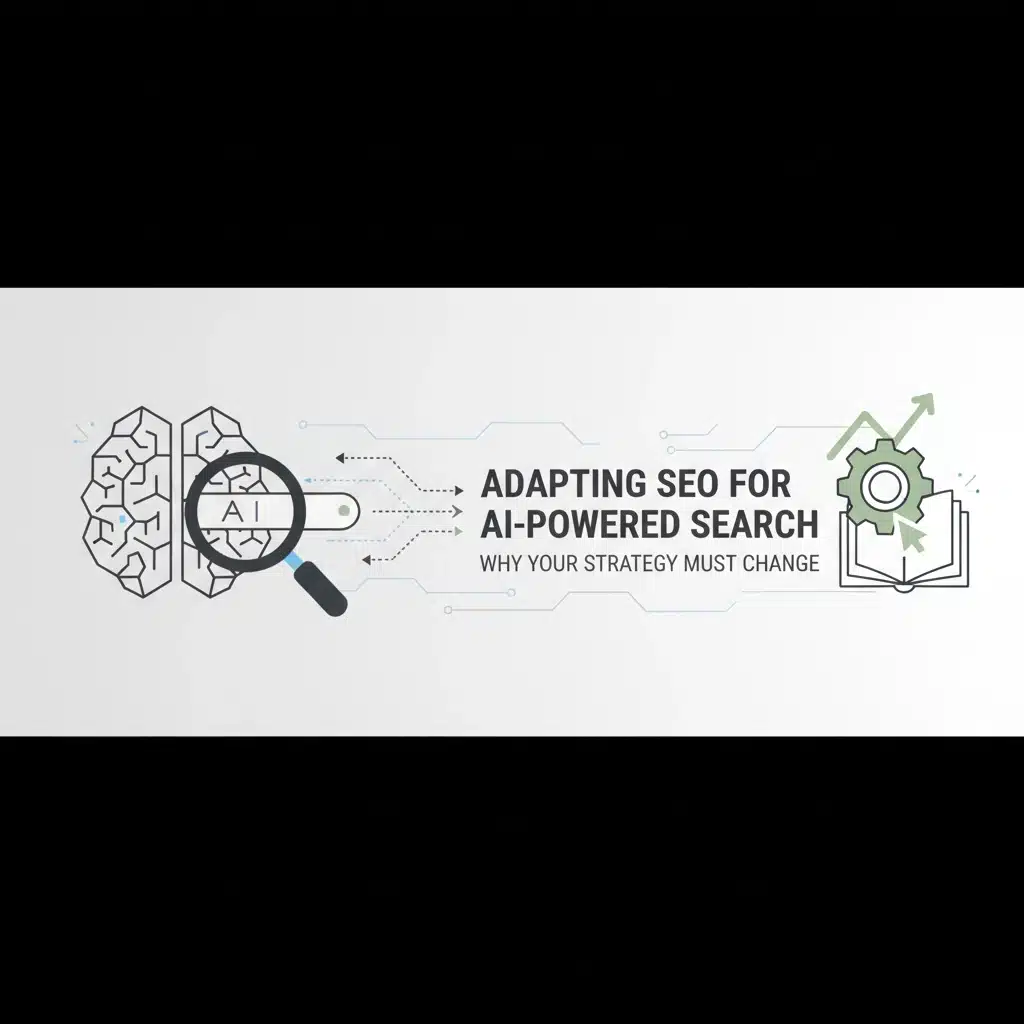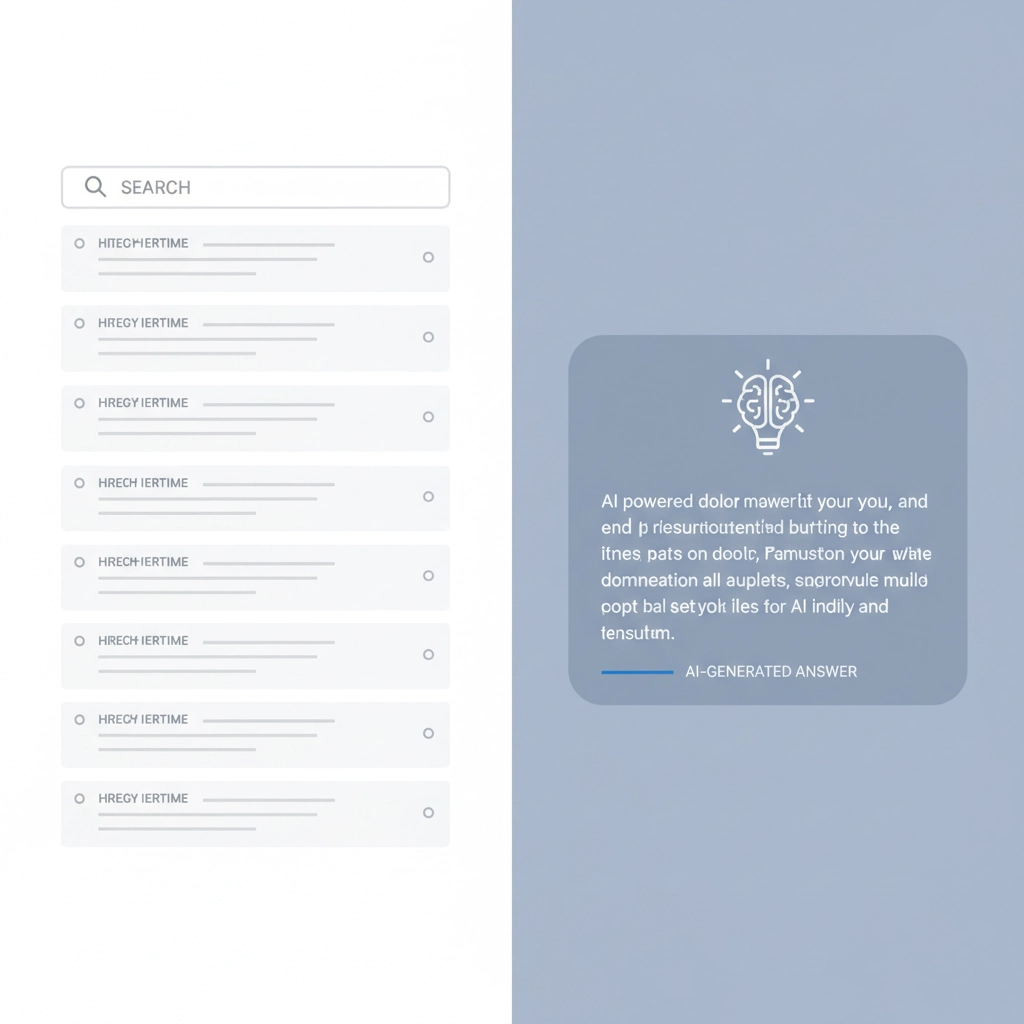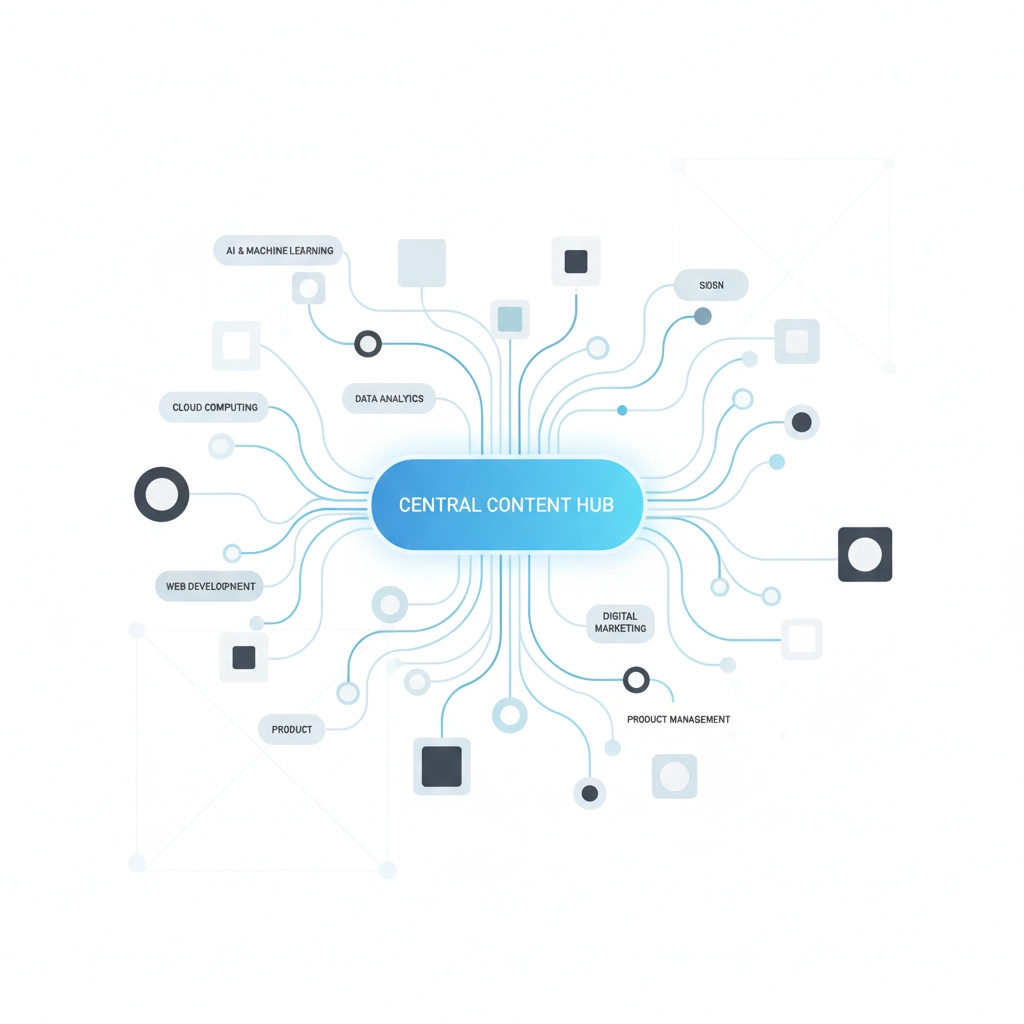Here's the harsh reality: 58.5% of Google searches now end without a single click. Users are finding what they need directly on search results pages through AI-generated summaries, completely bypassing traditional websites. If your SEO strategy still revolves around driving traffic to your site, you're optimizing for a world that no longer exists.
The shift to AI-powered search isn't coming, it's here. Google's AI Overviews have already driven over a 10% increase in search usage for queries that display these AI-generated summaries. Meanwhile, consumers are increasingly discovering products and services through ChatGPT, Claude, Perplexity, and other AI platforms that operate by completely different rules than traditional search engines.
Your current SEO strategy is fundamentally broken. Here's why you need to change it immediately, and exactly how to adapt before your competitors leave you behind.
The Death of Traditional SEO Tactics
Traditional keyword optimization is dead. Here's what happened: AI systems don't process language through keyword matching, they use semantic understanding to grasp context and user intent. When you optimize content for "SEO services Connecticut" or stuff pages with exact-match keywords, you're speaking a language that large language models (LLMs) don't understand.
The numbers don't lie: SEO experts predict that websites failing to adapt to AI-powered search will experience a 20% to 60% decrease in organic traffic. This isn't a gradual decline, it's happening right now as AI systems increasingly provide direct answers instead of sending users to your website.
The click-through metrics that defined SEO success for decades are becoming meaningless. When AI Overviews summarize answers directly on search results pages, traditional traffic measurements no longer indicate your actual visibility or influence. You could be ranking #1 for your target keywords while watching your traffic plummet because users never need to visit your site.
What AI-Powered Search Actually Looks Like
AI search operates on principles that fundamentally contradict traditional SEO wisdom:
Authority Over Volume: Instead of targeting hundreds of long-tail keywords, AI systems recognize and cite genuine expertise in specific fields. They evaluate whether your content demonstrates real knowledge rather than just keyword density.
Context Over Keywords: AI algorithms prioritize comprehensive topic coverage and semantic relationships. They want to understand what you actually know about a subject, not how many times you mention specific phrases.
Citation-Worthy Content: AI systems extract and reference information they consider authoritative. Your content needs to be structured for AI analysis and extraction, not just human consumption.
Multi-Platform Visibility: Success now requires optimization across ChatGPT, Claude, Perplexity, and Google's AI features: each with unique characteristics and requirements.
The Strategic Shifts You Must Make Immediately
Transform Your Content Creation Process
Your content must become AI-ready and citable. This means creating original, well-researched content that adds unique insights AI systems can't easily replicate elsewhere. Structure every piece with clear headings, direct answers to specific questions, and information that AI can easily extract and cite.
Stop writing content primarily for humans skimming pages. Start creating content structured for AI analysis while remaining valuable to human readers. This requires understanding how AI systems parse information and what makes content worth citing in AI-generated responses.
Build Genuine Topical Authority
Forget individual keyword targeting. Develop comprehensive coverage of your subject matter through interconnected content hubs that establish true expertise. AI systems evaluate content holistically: they assess how thoroughly a domain covers particular topics rather than how well it ranks for specific search terms.
Create definitive resource pages that AI systems will want to reference. These comprehensive guides should cover your expertise areas deeply, provide original research or insights, and serve as authoritative sources that AI algorithms recognize as trustworthy.
Optimize for AI Extraction and Citation
Your content formatting now serves dual purposes: human readability and AI comprehension. Implement proper schema markup and structured data to help AI systems parse your content accurately. Use clear formatting, direct answers, and logical information hierarchy that AI can easily navigate and extract.
Featured snippets remain critical because they represent exactly the type of structured information that AI systems prefer to extract and cite. Optimize your content to appear in featured snippets as a pathway to AI visibility.
New Success Metrics for the AI Era
Traditional SEO metrics miss the most important signals in AI-powered search. You need new performance indicators:
Brand Mentions in AI Responses: Track how often AI systems mention your brand or cite your content in generated answers. This indicates your authority level in AI training data and current responses.
AI Platform Visibility: Monitor how your content appears across different AI systems: ChatGPT, Claude, Perplexity, and Google's AI features. Each platform has unique characteristics for surfacing content.
Citation Quality: Measure whether AI systems reference your content as authoritative sources rather than just mentioning your brand. High-quality citations indicate genuine expertise recognition.
Cross-Platform Consistency: Ensure your brand messaging and expertise positioning remain coherent across all AI platforms while adapting to each system's unique requirements.
Real Results from Early Adopters
Companies implementing AI-optimized SEO strategies are already seeing significant results. Unilever reduced content-brief creation time by 30% and achieved a 22% lift in organic traffic to key product pages within six months using AI-driven content optimization strategies.
The businesses winning in AI search share common characteristics: they've shifted from keyword optimization to expertise demonstration, from traffic generation to authority building, and from single-platform focus to multi-platform visibility.
How Expert SEO Consulting Helps Businesses Adapt
At Expert SEO Consulting, we've been preparing clients for this transition since early 2024. Our forensic SEO approach identifies exactly where your current strategy fails in AI-powered search environments and creates comprehensive adaptation plans.
We help Connecticut businesses understand how their content performs across different AI platforms, optimize for AI extraction and citation, and develop new measurement frameworks that actually indicate success in the AI era. Our clients maintain visibility as search behavior evolves because we focus on building genuine expertise that AI systems recognize and cite.
The adaptation process includes:
- Comprehensive content audits for AI readiness
- Multi-platform optimization strategies
- New KPI development and tracking systems
- Authority-building content strategies
- Technical infrastructure optimization for AI analysis
Your Next Steps Are Non-Negotiable
The transition to AI-powered search is accelerating. Every month you delay adaptation means losing ground to competitors who understand the new rules. Here's what you must do immediately:
Audit your top-performing content for AI readiness. Ensure it contains clear, structured information that AI systems can easily extract and cite. If your content doesn't provide direct answers to specific questions, it's invisible to AI.
Develop comprehensive topic coverage instead of targeting individual keywords. Create content hubs that establish genuine expertise in your field rather than trying to rank for as many terms as possible.
Implement new tracking systems that measure AI visibility rather than just traditional search metrics. Start monitoring brand mentions in AI responses and citation quality across different platforms.
The businesses that thrive in AI-powered search won't be those with the best traditional SEO: they'll be those with genuine expertise that AI systems want to cite and recommend. The question isn't whether to adapt your strategy. The question is whether you'll do it before your competitors make you irrelevant.
Your current SEO strategy is optimizing for a world that's already gone. The new world rewards expertise, authority, and content that AI systems trust enough to cite. Make the shift now, or watch your visibility disappear as AI-powered search becomes the standard way people find information.










